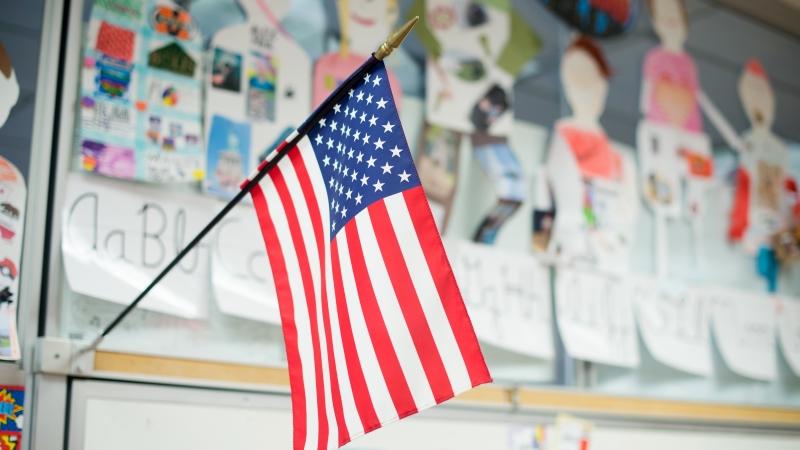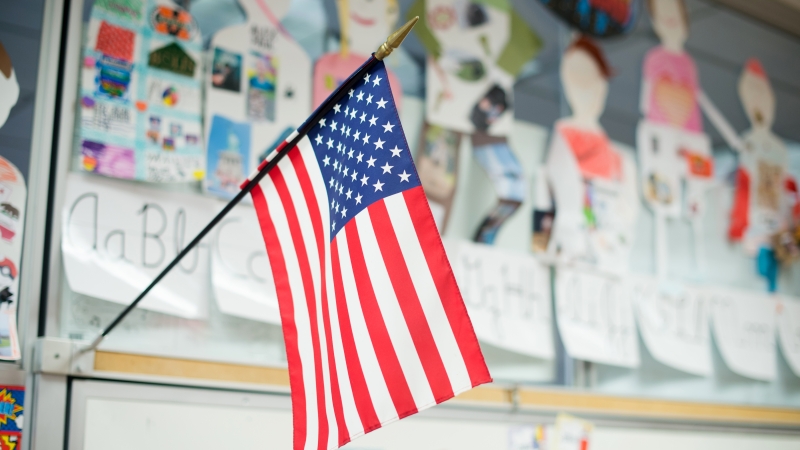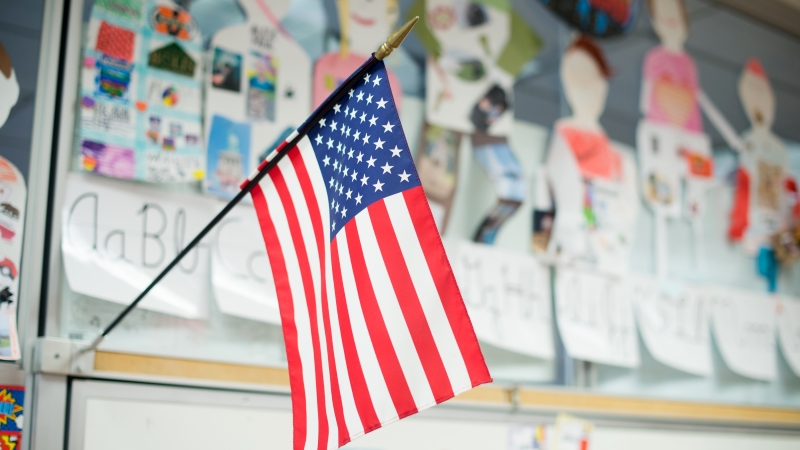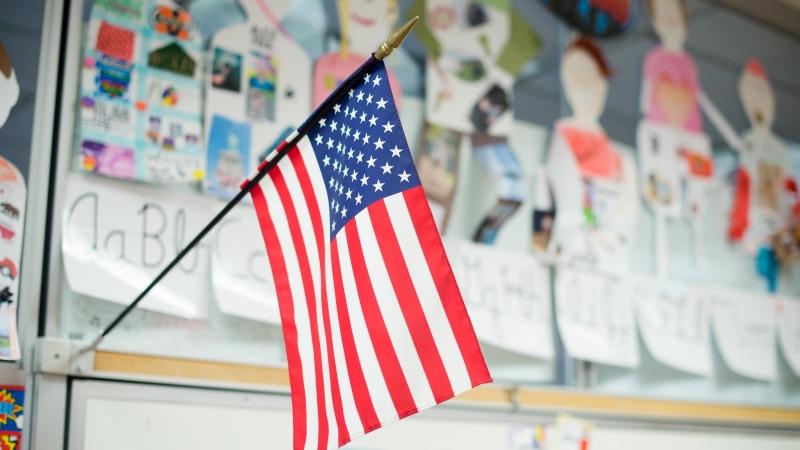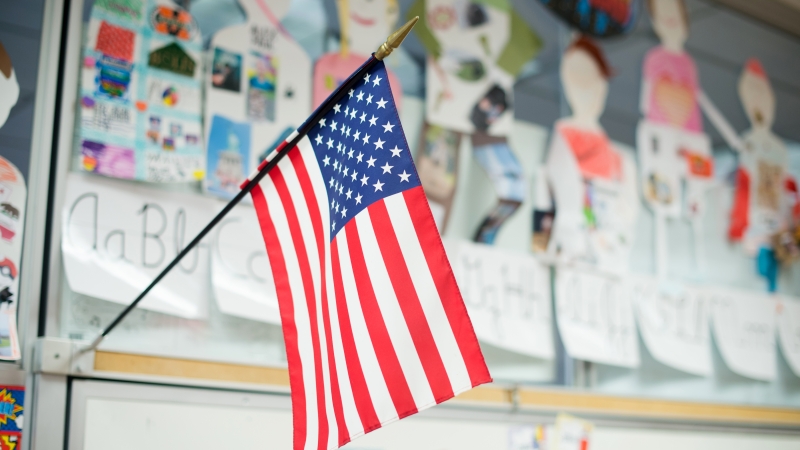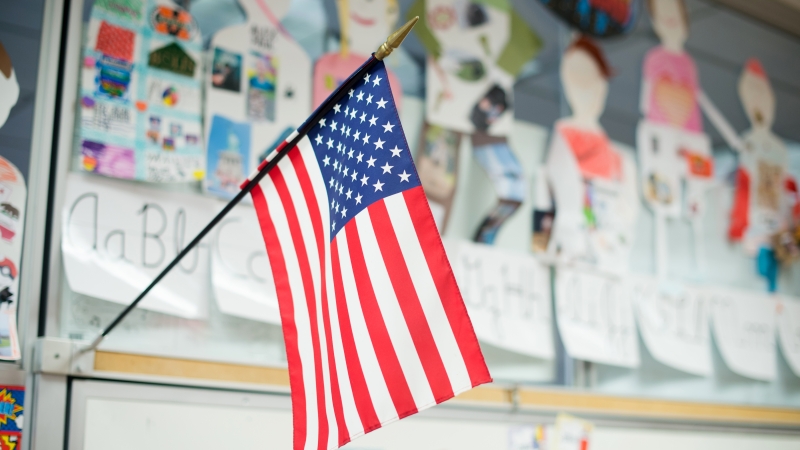
Virginia Board of Education Meeting Summary
November 14/15, 2019
Virginia Board of Education Meeting Summary
November 14-15-2019
Board Work Session
Update on Executive Directive #4 and What's on the Horizon for Early Childhood Education
The Board received an update on Executive Directive #4 and What’s on the Horizon for Early Childhood Education. To ensure every child has equitable access to opportunity, Virginia should invest more state resources to increase access to and improve the quality of its early childhood care and education system. In response to Executive Directive 4, the Executive Leadership Team conducted listening sessions, analyzed data, collaborated across agencies and developed a comprehensive set of recommendations.
New state resources will be needed to increase access for at-risk 3s and 4s as Virginia is generally maximizing available federal resources. It should be noted that an incremental or pilot approach is recommended for serving more at-risk 3s. As relates to quality, Virginia should continue to maximize federal resources first as well as pursue new funding such as the Preschool Development Grant.
The following is a summary of the recommended actions to improve school readiness outcomes in Virginia:
- Maximize Access for At-Risk 3s and 4s
- Preserve and maximize all available federal funding, specifically Early Head Start, Head Start, Child Care and Development Block Grant (CCDBG) and Individuals with Disabilities Education Act (IDEA)
- Enhance VPI in four ways to ensure all families of at-risk 4s have an option
Expand two existing state programs VPI and Mixed Delivery to include at risk 3s on a pilot basis in both public and private schools
- Build a Uniform Measurement and Improvement System
- Require measurement to improve child outcomes
- Build pathways to improvement that address the diverse educator needs and aligh with new measurement system
- Support families to choose quality
- Build on current quality efforts and better track child outcomes
- Align expectations, measure cost-impact and incent private providers
- Phase in system over three years to avoid jeopardizing access for infants and toddlers
- Consolidate Oversight and Administration
- Establish one board and one agency as responsible for child care and early learning to create a single point of accountability for school readiness
- Transition Child Care and Development Block Grant (CCDBG) and Head Start Collaboration to the VDOE
- Ensure continuity and preserve match to having VDOE contract with VDSS for child care background cheks and child care subsidy programs so families can easily apply online or be supported at local Social Services offices.
- Task VDOE and VDSS to collaboratively design and buld a new licensing platform prior to transition
2020 will offer opportunities to increase equitable access and improve quality in early childhood in Virginia:
- Virginia will pursue a state budget that would incrementally increase the number of at-risk 3s and 4s served in public and private settings while continuing to maximize federal dollars.
- Virginia will pursue legislation to require a uniform measurement and improvement system and consolidate early childhood functions under BOE/DOE.
- Virginia will build out the infrastructure at the local level for coordination, measurement and improvement in three key areas: access and enrollment; quality; and family engagement.
Efforts will require ongoing engagement of diverse stakeholders to be led by Division of School Readiness. Additional information regarding improving school readiness in Virginia can be found at: http://doe.virginia.gov/boe/meetings/2019/work-session/11-nov/early-childhood-issues-on-the-horizon.pptx.
Guidance to Fulfil the Instructional Hours Requirement Utilizing Virtual Learning Opportunities
The Board’s work session discussed potential guidance to fulfil the instructional hours requirement utilizing virtual learning opportunities. The overall goal is to provide deeper learning experiences for all students. This goal leads to two overarching questions: Do students need to be in a seat in a school building to learn and acquire knowledge? Is the school building the place we APPLY the knowledge?
LEAs are rethinking the educational environment to include: student control over time, place, path, and/or pace for learning; leverage technology to incorporate different learning models such as virtual learning and blended learning experiences; and adjustments to school schedule to provide flexibility.
Educator’s concerns revolve around lack of time for planning, collaboration, and professional learning. Models to resolve this concern include, but not limited to:
-
- Students work occasionally from home utilizing a division provided laptop, learning management system, and teacher content. This day becomes a teacher work day for collaboration, professional learning, and planning; and
- Flexing the school day during certain days to allow students to come in late or leave early with expectation of completing online work.
Potential barriers include:
Virginia Code
- §22.1-98 Reduction of state aid when length of school term below 180 days or 990 hours
Standards of Accreditation
- 8VAC20-131.5 Definitions of instructional day, instructional hours, standard school day, and standard school year
- 8VAC20-131.150 Standard School Year and School Day
Accountability
- What assurances can be developed in lieu of time?
- Chronic absenteeism – how to account for attendance?
Equity and Access
- Technology, internet
- Services such as meals, student support
- Access to teacher during virtual time
- Childcare arrangements
Standard Setting Procedures
The Board was briefed on the Standard Setting Procedures. The procedure used for standard setting for the SOL tests is known as the Angoff procedure. This procedure has been widely used on tests for several years and has been used with the SOL Assessments since 1998. Steps used in the procedure can be found at: http://www.doe.virginia.gov/boe/meetings/2019/work-session/11-nov/description-of-standard-setting-procedure.docx
Alternative Accreditation Plans
The Board also received a briefing on Alternative Accreditation Plans. As set forth in the Standards of Quality and according to department procedures, any school board may request the board for release from state regulations or, on behalf of one or more of its schools, for approval of an Individual School Accreditation Plan for the evaluation of the performance of one or more of its schools as authorized for schools enumerated in this subsection, based on special circumstances.
High schools with a graduation cohort of Fifty (50) or fewer students Due to the small cohort size, one student can make a significant difference in the index. For this reason, the Graduation and Completion Index (GCI) alone is not an appropriate measure for the school; additional criteria are needed to determine accreditation. The plan’s criteria will be applied only if: The school does not meet the GCI of 88, and The cohort size for the graduating class is 50 or fewer. The maximum number of GCI points allowable vary by cohort size.
Special purpose schools with alternative accreditation plans shall be evaluated on standards appropriate to the programs offered in the school. Alternative Accreditation Plans must: Explain the purpose and rationale of the individual accreditation plan; Describe the characteristics of the student population; Describe the instructional programs provided to students; Describe strategies used to evaluate student progress; Describe how students will be taught by licensed personnel; Describe measures that are objective, measurable and related to the mission of the school which support the school quality indicators of the Standards of Accreditation; Describe how statewide assessments will be used to support instruction; and Describe how the school meets state and federal testing requirement. School quality indicators are in the following categories:
Academic Achievement – Proficiency in English reading/writing achievement, including student growth in reading and English Learner progress towards proficiency, where applicable; Proficiency in mathematics, including student growth, where applicable; Proficiency in science; English achievement gaps among student groups; Mathematics achievement gaps among student groups.
Graduation and School Progress – Graduation and completion index (high schools) and Dropout Rate (high schools).
Student Participation and Engagement – Chronic Absenteeism
College, Career and Civic Readiness – Participation and achievement in advance coursework, career and technical education, and work-and service-based learning (high schools).
The application timeline is as follows:
- May 2019 - Stakeholder input webinars to update the application to align with the 2017 SOA
- June 2019 - Webinars with school divisions on the application process
- September 6, 2019 - Applications due
- September – October - Review of applications, feedback to divisions, and revisions, as needed
- November 2019 – First review of applications by the Board of Education
- January 2020 – Final review of applications by the Board of Education
- January 2020 – Divisions will submit data according to the approved application and school quality indictor levels of performance and accreditation status will be updated as necessary
Board of Education's 2019 Annual Report on the Condition and Needs of Public Schools in Virginia
The Board’s work session concluded with a discussion on the Board of Education’s 2019 Annual Report on the Condition and Needs of Public Schools in Virginia. This report will be on the Board’s next business meeting agenda. The draft report can be found at: http://doe.virginia.gov/boe/meetings/2019/work-session/11-nov/2019-annual-report-11-05-19-draft.docx.
Board Business Meeting
Revisions to the Career and Technical Education (CTE) Work-Based Learning Guide
The Board approved the revisions to the Career and Technical Education (CTE) Work-Based Learning Guide. There were no changes to the Career and Technical Education Work-Based Learning Guide since the Board’s review in October.
The 2019 approved revision expands recognized work-based learning (WBL) experiences from eight to eleven. Time requirements have been standardized to allow more students to undertake and complete such experiences within a reasonable time frame without sacrificing rigor. Further, completing 280 hours of cooperative education, internship, or apprenticeship would allow students to earn one credit, while completing 140 hours of mentorship would allow students to earn half a credit, toward graduation in addition to any credit earned through the associated CTE course.
Rules have been simplified to open WBL experiences to students from grades six to twelve, with the exception of paid experiences that must adhere to age requirements associated with youth labor laws, experiences where students are involved with machinery and must adhere to federal and state safety laws (e.g., OSHA), and highly regulated fields, such as those within health and medical sciences and trade and industrial.
Required documentation has been streamlined, eliminating repetitive or outdated forms, and reworking required forms to allow school divisions to adapt each one to the needs of their locality while still supplying all necessary information.
The WBL guide revisions reflect greater inclusiveness of various methods used by schools and employers to offer WBL to students. It also serves to bolster career exploration options for students and recognizes the importance of WBL that occurs in entrepreneurial and school-based settings. The revisions also allow for a more standard measurement of hours and a credit that is based on the WBL hours worked across various experiences. These guidelines are not only straightforward but easier to implement for a greater number of students throughout the commonwealth to have access to WBL opportunities.
Community and stakeholder engagement were vital components of the work related to this agenda item. Throughout the development of the revision, outreach to stakeholders was a sustained effort.
The approved revisions for the Career and Technical Education (CTE) Work-Based Learning Guide can be found at: http://doe.virginia.gov/boe/meetings/2019/11-nov/item-a.docx.
The Board approved the Advisory Board on Teacher Education and Licensure's Recommendation to Establish Dual Language Endorsements in the Licensure Regulations for School Personnel in Response to House Bill 1156 (2018 General Assembly). These regulations are now subject to the procedures of the Administrative Process Act. The Regulations Governing the Review and Approval of Education Programs in Virginia need to be amended to reflect the dual language endorsements.
The approved Dual Language Endorsements Revisions to Licensure Regulations for School Personnel can be found at: http://doe.virginia.gov/boe/meetings/2019/11-nov/item-b.docx.
Advisory Board on Teacher Education and Licensure’s Recommendation for Guidelines for Alternate Routes to Licensure in Response to House Bill 2486 (2019 General Assembly)
The Board approved the Guidelines for Alternate Routes to Licensure in Response to House Bill 2486 of the 2019 Virginia General Assembly. The Virginia General Assembly required that the Board of Education develop these guidelines no later than December 1, 2019. The approved guidelines will now be posted on Town Hall for a 30-day public comment period and on the Department of Education’s website. The approved Guidelines can be found at:
http://doe.virginia.gov/boe/meetings/2019/11-nov/item-c-attachment-a.docx.
Advisory Board on Teacher Education and Licensure's Recommendation for Dual Enrollment in Response to Senate Bill 1575 (2019 General Assembly)
The Board approved the Advisory Board on Teacher Education and Licensure’s Recommendation for Dual Enrollment in Response to Senate Bill 1575 (2019 General Assembly). The approved recommendation includes the following:
- Increase the pipeline of teachers qualified to teach dual enrollment courses by encouraging:
- additional funding for incentives for K-12 teachers to meet current requirements for higher education dual enrollment eligibility requirements (subject area master’s degree or graduate content area coursework);
- accredited institutions of higher education to offer graduate content course to assist individuals in meeting qualifications to teach dual enrollment; and
- further discussion regarding the criteria used to determine K-12 teacher eligibility to teach dual enrollment courses for college credit.
- Request the Board of Education to establish a one-year, nonrenewable Dual Enrollment License.[1] [This license will allow school divisions to hire dual enrollment instructors employed in institutions of higher education who then may be assigned as the “teacher of record” for the course and eliminate the need to assign a second employee to the classroom.] This license may be issued to an individual who does not otherwise hold a Virginia teaching license issued by the Board of Education and who:
- Is employed as an instructor by an institution of higher education that is accredited by a nationally recognized regional accreditation body;
- Is teaching in a dual enrollment subject area (including career and technical education) at such institution in which the individual seeks to teach in a public school;
- Complies with the requirements set forth in subdivisions D1 and 3 of Section 22.1-298.1 of the Code of Virginia;
- Must maintain continuous employment in such position at the institution of higher education as condition of continued licensure (as verified by the school division); and
- Receive a recommendation for the license from an employing Virginia school division superintendent.
An extension of the license must be requested by the employing Virginia school division superintendent each year of employment.
This license is subject to Part VII --Governing the Revocation, Cancellation, Suspension, Denial, and Reinstatement of License of the Licensure Regulations for School Personnel.
The complete ABTEL report can be found at: http://doe.virginia.gov/boe/meetings/2019/11-nov/item-d-attachment-a.docx.
Revisions to the Guidelines for Uniform Performance Standards and Evaluation Criteria for Teachers, Principals, and Superintendents
The Board approved the revised Guidelines for Uniform Performance Standards and Evaluation Criteria for Teachers, Principals, and Superintendents. These Guidelines are consistent with the performance standards included in the Guidelines for Uniform Performance Standards and Evaluation Criteria for Teachers, Principals, and Superintendents, include student academic progress as a significant component, and include an overall summative rating.
The approved Guidelines for Teachers can be found at:
http://doe.virginia.gov/boe/meetings/2019/11-nov/item-f-attachment-a.docx.
The approved Guidelines for Principals can be found at:
http://doe.virginia.gov/boe/meetings/2019/11-nov/item-f-attachment-b.docx.
The approved Guidelines for Superintendents can be found at:
http://doe.virginia.gov/boe/meetings/2019/11-nov/item-f-attachment-c.docx.
The Board of Education’s 2019 Annual Report on the Condition and Needs of Public Schools
in Virginia
The Board approved the 2019 Annual Report on the Condition and Needs of Public Schools and
Virginia that includes:
- A complete listing of the current standards of quality for the Commonwealth's public schools, together with a justification for each particular standard, how long each such standard has been in its current form, and whether the Board recommends any change or addition to the standards of quality;
- Information regarding parent and student choice within each school division and any plans of such school divisions to increase school choice;
- A complete listing of each report that local school divisions are required to submit to the Board or any other state agency, including name, frequency, and an indication of whether the report contains information that the local school division is also required to submit to the federal government; and
- A complete listing of each report pertaining to public education that local school divisions are required to submit to the federal government, including name and frequency
The complete report required by Article VII, Section 5 of the Constitution of Virginia and §22.1-18 of the Code of Virginia can be found at:
http://doe.virginia.gov/boe/meetings/2019/11-nov/item-g-attachment-a.docx.
Requests for Renewal of Alternative Accreditation Plans from Albemarle County Public
Schools, Town of Colonial Beach Public Schools, Craig County Public Schools, Highland
County Public Schools, Scott County Public Schools and York County Public Schools for
High Schools with a Graduation Cohort of Fifty (50) or Fewer Students
The Board received for first review the Requests for Renewal of Alternative Accreditation Plans
from Albemarle County Public Schools, Town of Colonial Beach Public Schools, Craig County
Public Schools, Highland County Public Schools, Scott County Public Schools and York Count
Public Schools for High Schools with a Graduation Cohort of Fifty (50) or Fewer Students.
Due to the small cohort size, one student can make a significant difference in the GCI. For this reason, the GCI alone is not an appropriate measure for these schools; additional criteria are needed to determine accreditation. Each school division is requesting a waiver to 8VAC 20-131-380 of the Standards of Accreditation so that adjustments may be made to the accreditation calculations for accountability purposes. The following are being requested by each school division for the accreditation cycles for three years beginning in 2019-2020:
- The proposed alternative accreditation plan will be used only if the school fails to meet the GCI benchmark for full accreditation AND the cohort size for the graduating class is less than 50.
- The maximum number of GCI bonus points allowable for alternative accreditation will be based upon the size of the On-Time Graduation Rate cohort as follows:
- 0-14 students, no bonus points assigned: the school division will submit a written appeal to the State Superintendent of Public Instruction.
- Maximum of 5 points for cohorts of 15-20 students
- Maximum of 4 points for cohorts of 21-40 students
- Maximum of 3 points for cohorts of 41-50 students
- The division will submit a written appeal of the accreditation rating to the Superintendent of Public Instruction for cohort sizes of less than fifteen students or in cases where special circumstances warrant explanation and consideration in addition to the maximum point values outlined above.
The Superintendent of Public Instruction will make the final determination if the school division appeals the GCI due to cohort sizes of less than fifteen students or in cases where special circumstances warrant explanation and consideration.
Each school division has determined additional criteria and measurable thresholds for achieving bonus points based upon individual school data. Each school has submitted between three and six additional criteria, each of which is worth one bonus point if the benchmark is met. Descriptions of the additional criteria fall into the following categories:
- Advanced Diplomas earned by graduating cohort
- Advanced Placement course enrollment and/or Advanced Placement examination scores
- Completion of internships/mentorships
- Completion of service learning programs
- Career and Technical Education program completion, certification, and/or credential awards
- Dual Enrollment course enrollment
- Enrollment in higher level courses such as chemistry, calculus, and physics
The proposals can be found for Item H, Attachments A-H at: http://doe.virginia.gov/boe/meetings/2019/11-nov/item-h-attachments%20a-f.pdf.
Requests for Renewal of Alternative Accreditation Plans from Albemarle County Public Schools, Arlington County Public Schools, Chesterfield County Public Schools, and Fairfax
County Public Schools
The Board received for first review the Requests for Renewal of Alternative Accreditation Plans from Albemarle County Public Schools, Arlington County Public Schools, Chesterfield County Public Schools, and Fairfax County Public Schools. Previous plans for these school divisions were approved May 25, 2017. The current requests for renewal of alternative accreditation plans address the revisions to Graduation and Completion Index in the Standards of Accreditation.
Final review is anticipated at the January 23, 2020, meeting. Upon approval of alternative accreditation applications, the final performance of School Quality Indicators and accreditation status may change pending review of data.
The requests can be found for Item I, Attachments A-H at: http://doe.virginia.gov/boe/meetings/2019/11-nov/item-i-attachments-a-h.pdf
